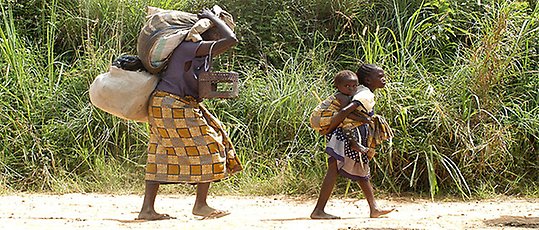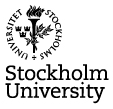Environmental migration in a warmer world
Seminar with François Gemenne, Research fellow at Institute for Sustainable Development
and International Relations (IDDRI), 6 May, 14:00-15:00 at at Royal Swedish Academy of Sciences.
Massive population displacements are regularly forecasted as one of the most dramatic possible consequences of climate change.
The dominant perspective on the issue, however, is rooted in environmental determinism: migration is conceived as a threat to human security, the only choice left when all other adaptation strategies have failed. Environmental ‘refugees' are depicted as the expiatory victims of climate change, subjects of a humanitarian catastrophe in the making.
Empirical studies, however, reveal a different picture, where migration becomes an adaptation strategy for those who are affected by the impacts of climate change. Yet mobility often remains a luxury, unavailable for those who cannot afford to migrate. Hence the most vulnerable are often stuck in places heavily impacted by climate change, unable to seek higher grounds and a better life.
This presentation aims to challenge the too commonly-held views of 'climate refugees' and to show how policy responses to environmental changes affect people's ability to migrate, and why these policy responses often matter more than the very impacts of climate change in their migration decision. Considering that migration can improve human security rather than hinder it, the presentation makes the case for migration policies to be part of adaptation plans. Two months after the major reshifting of Sweden's immigration policy, the presentation will also address what environmental migration means for Europe, and the role that can be played by migration policies in industrialized countries.
About François Gemenne
François Gemenne is a research fellow at the Institute for Sustainable Development and International Relations (IDDRI), and also teaches the international politics of climate change and the governance of migration at Sciences Po Paris, the University of Paris 13 and the Free University of Brussels.
His research deals with populations displaced by environmental changes and the policies of adaptation to climate change. He has conducted field studies in New Orleans, and in the archipelago of Tuvalu, as well as in China, Central Asia, the Maldives and Mauritius.
He holds a joint doctorate in political science from Sciences Po Paris and the University of Liege (Belgium). He also holds a Master in Development, Environment and Societies from the University of Louvain, and a Master of Research in Political Science from the London School of Economics, where he also taught some courses.
He has authored three books: 'Anticiper pour s'adapter' (with L. Tubiana and A. Magnan, in French, Pearson 2010),‘Géopolitique du changement climatique´ (in French, Armand Colin 2009), and ‘Nations and their Histories : Constructions and Representations´ (edited with Susana Carvalho, Palgrave Macmillan 2009).
This seminar is organized in collaboration with the French Embassy in Sweden.

Audio version
Vacancies | Contact | Environmental policy | Cookies
Stockholm Resilience Centre
Stockholm University, Kräftriket 2B | Phone: +46 8 674 70 70 | info@stockholmresilience.su.se
Organisation number: 202100-3062 | VAT No: SE202100306201


